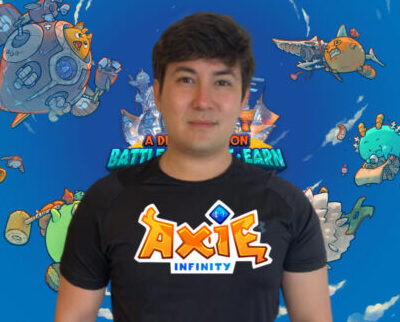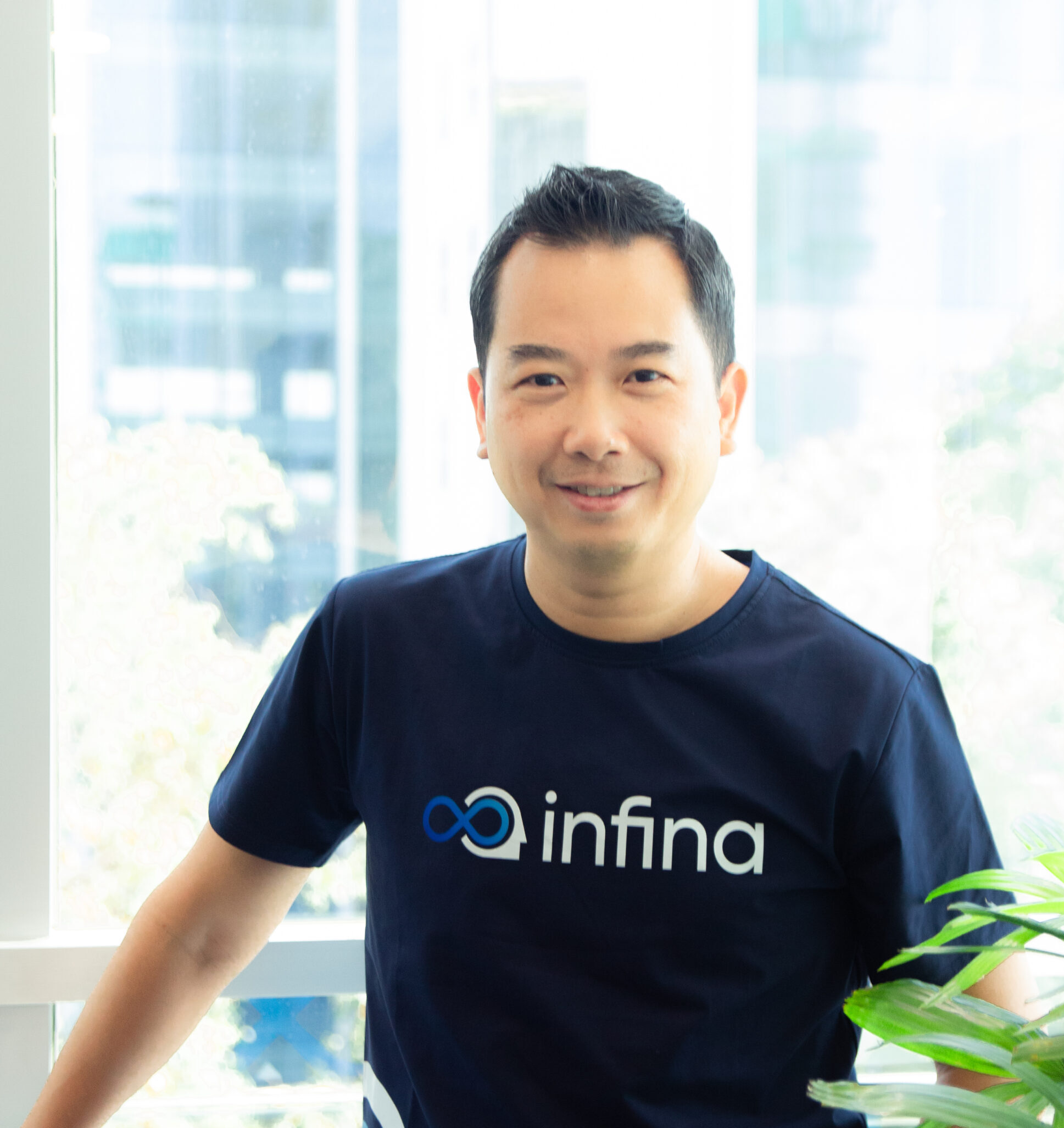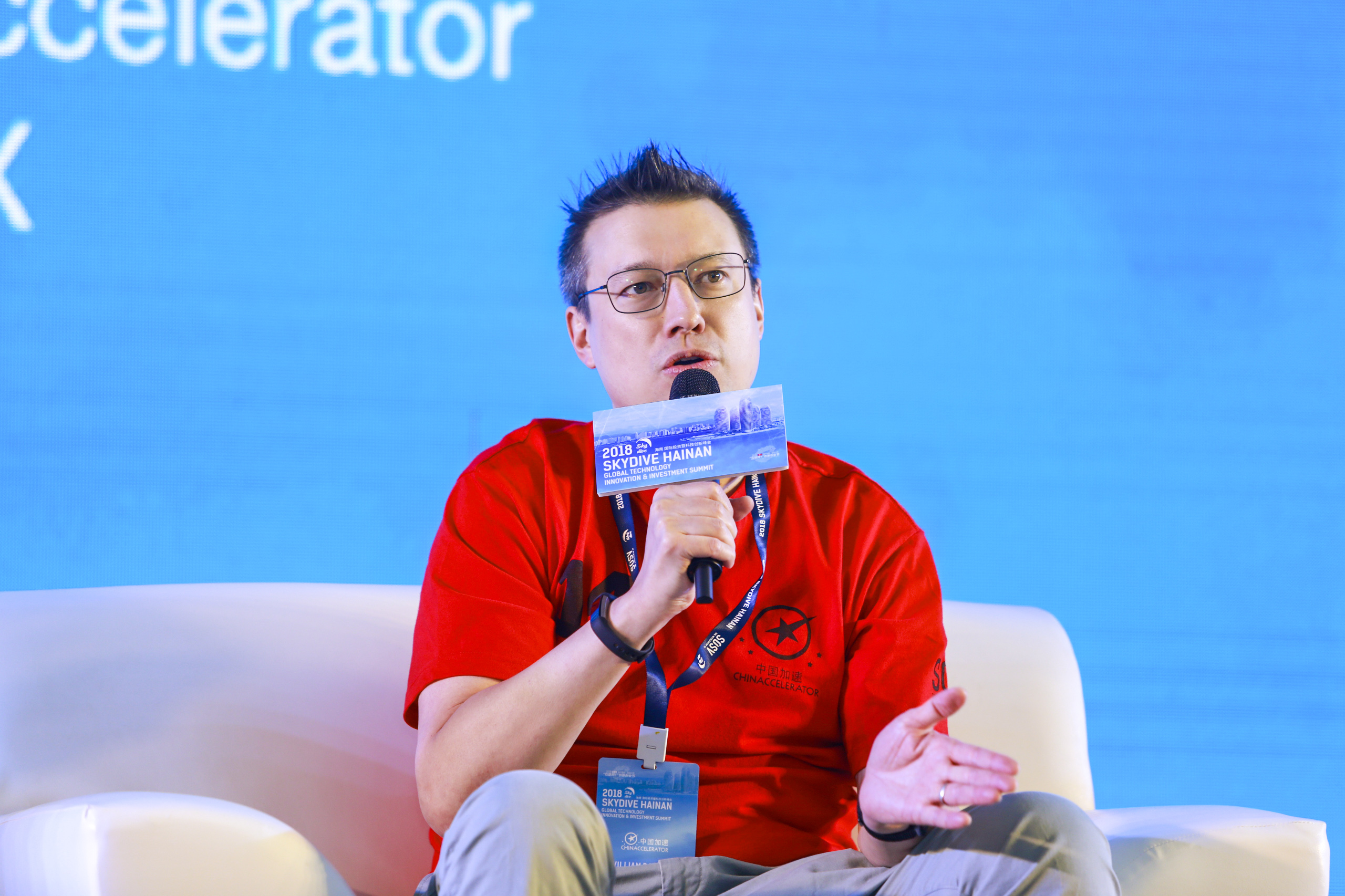Sanae Masuko
I am spreading happiness through food.
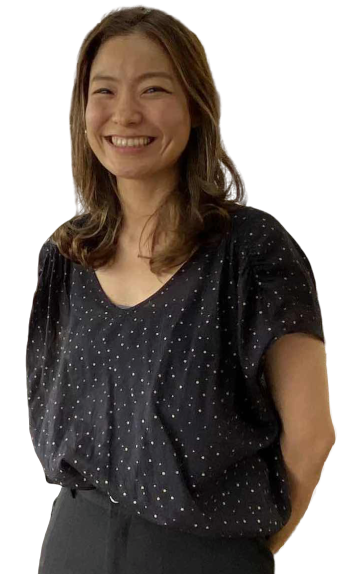
Sanae Masuko is the co-founder of Pizza4P’s — a sustainability-focused, farm-to-table restaurant chain with a mission to deliver wow and sharing happiness to the world. Pizza4P’s has over 14 stores across Vietnam and has been featured in The New York Times, BBC News and Thrillist. Previously, Sanae worked at CyberAgent Ventures in Tokyo. She is currently based in Ho Chi Minh City, Vietnam.
Sign up to our newsletter.
AP: Tell us about your family background.
SM: I can describe my family as a tender Japanese family. Our family roots stemmed from a Samurai family. My father’s clan belongs to a Samurai clan called Takasugi. My father is an employee in a Japanese company and my mother is a dentist’s nurse. I was born in 1983. Japan was already stable in the 1980s following the post-war years. My parents’ generation was living in a booming economy.
Back then, they were more focused on the day-to-day activities given the chaotic pace of the Japanese economy at the time, but they cared a lot about our education. My parents are very passionate about education. My big brother and I were expected to live up to their high standards of education. So from junior high school, we were enrolled in a private Japanese school. After spending the whole day at school, I would go to a private after school tutor. I spent a lot of time studying.
AP: What were your dreams as a child? What did you study in university?
SM: I was interested in Asia. So I studied Chinese politics at Keio University. I also majored in new media, which was the internet at that time. I studied Chinese politics by chance. When I was in high school, the school allowed us to learn a second language, so I got interested in learning Chinese. I think there are a lot of similarities between Japanese and Chinese. For me, I do not have a preconceived image of China, so I wanted to see the more human side of China. I think there are very human sides to both Japan and China. I also believe that the Japanese and Vietnamese are also quite similar. We — the Japanese — care about harmony and the community. Outside of the community, we are not as open to discuss any differences or thoughts, but inside the community, we are very open and more comfortable discussing our private thoughts. I could say that’s a very similar trait between Vietnamese and Japanese. For the Chinese, I observe that everything is very open; they’re very aggressive (in business)! I see them being different, and that got me very interested in learning more about them and Chinese politics.
AP: What was your first job?
SM: In 2005, I graduated and joined a company called CyberAgent. It was an internet advertising agency and also an internet media company at the time. Around that period, the internet business was booming, and it was still a new area. So I wanted to give it a try since it looked like an exciting environment. My parents always thought that the internet business wasn’t a plausible option. Instead, they wanted me to work for a typical big stable, conservative Japanese company. Being their second child and full of curiosity, they worried about my career and future. I ended up working at CyberAgent for three years in Japan. My parents couldn’t imagine that I would later be doing a food and beverage (F&B) business in Vietnam back then! I ended up working at CyberAgent for three years in Japan.
“Before we decided to start a restaurant, my husband had already built a pizza oven in our backyard garden. I joined in to help build the oven and we hosted a private pizza party. It was amazing to see the magic, to see that pizza can connect people together and leave an unforgettable experience.”
AP: Did you have a fork moment in your life? What made you go to Vietnam?
SM: I met my husband at CyberAgent in Japan. We were both living in Tokyo. He was my colleague, though a bit more senior than me, and we worked on the same project together. After a while, we started dating.
At the time, I never thought about leaving my career or Japan. Yosuke, my husband, was passionate about being an entrepreneur, owning a business, and living in a foreign country. At that moment, he was looking for a career outside of Japan, and the two choices were Paris and Vietnam.
It was 2009. Both of us had never been to Vietnam. When we first came here, it was only for a few days of travelling, we spent only two or three days in Vietnam. We loved Vietnam after that trip, so my husband decided to move over. At that time, we were still not married yet. I was 25 and didn’t think too much. We were only dating for a few years. Later on the way back to Japan, he proposed to me on the plane. Given the distance, we decided to get married before coming back to Vietnam.
Soon, I got pregnant and decided to give birth in Japan before moving to Vietnam. During the first year of our marriage, we lived separately. At that time, I took maternity leave. After a year of being in Japan with the baby, I moved to Vietnam. We have lived together since then.
AP: How do you motivate yourself during times of hardship? How do you balance it all?
SM: Actually, I’ve lost the work-life balance at that point. My husband encouraged me a lot since he was happy to start a family but at the time, I felt like I was losing my career, my freedom. I felt that I was struggling but my husband gave me a new perspective, so that was encouraging to me. The baby gave us the chance to pause and to think of doing something new and different, so I decided to let it go and thought maybe this is a good opportunity for change.
I wanted the family to live together as soon as possible so after about six months having our first child in Japan, I took the baby with me to Hanoi. My husband had established the CyberAgent Ventures office in Hanoi at the time. He was working in venture capital while I was being a housewife, doing everything to support him. At that time, the Hanoians cannot communicate in English so I started studying a little Vietnamese by myself.
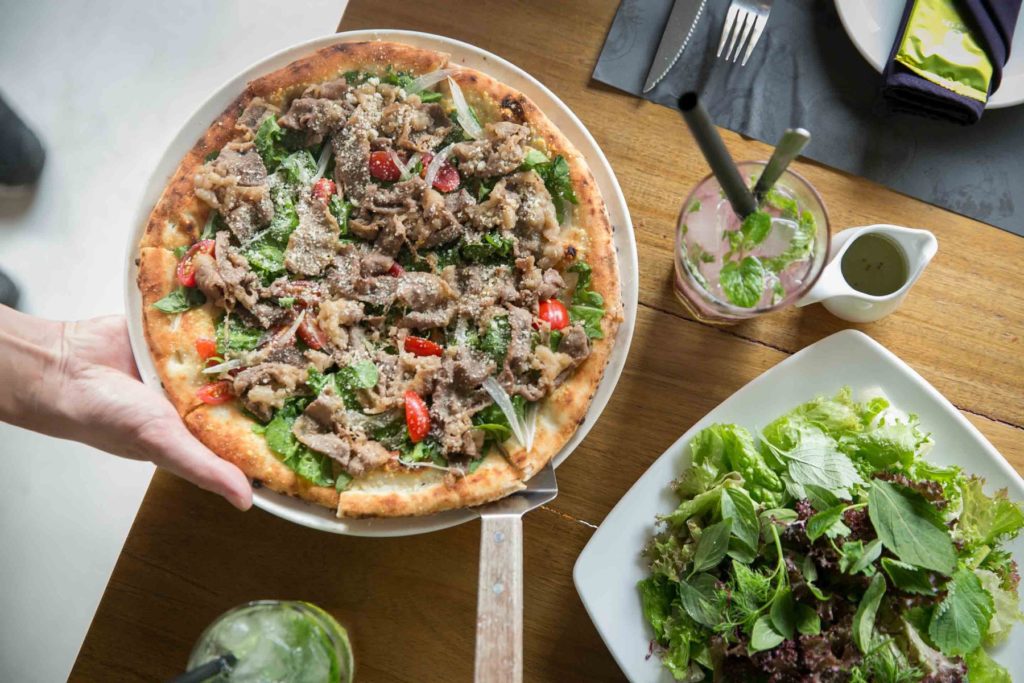
AP: Tell us about the early days of your career in Vietnam and starting Pizza4Ps?
SM: My husband Yosuke was working to support the portfolio companies of CyberAgent Ventures. After he arrived alone in Hanoi for a year, he thought a lot about starting his own business during that period. There were a lot of entrepreneurs and he was working for them. He observed that the local entrepreneurs were growing very fast after starting their own business. He felt frustrated and felt that he was losing the opportunity. He was spending his time working as a company employee supporting other entrepreneurs to grow instead of focusing on his own dreams.
Although we love the company we were working at previously, somehow I struggled on finding my purpose. My life purpose and company purpose weren’t aligned. Though I was working very hard for the company, sometimes I wondered, ‘what for’? I lost my why. Why are we working so hard? We both don’t have much interest in this career or the money in the long term. We kept talking about what we want to achieve through life.
I saw my husband struggling a lot during this period. He thought a lot about the risks but I also saw the ambition in him, to start his own journey. And I love him for that. I love the way he gets excited about his passion and he’s very focused on them. He said that if we lose this opportunity, it will be harder when our baby is a bit older so I thought we should try as early as possible. I want him to be him — so I bought into his passion and motivated him to move forward with his dreams. As long as we still have the passion for it, we will keep thinking about it.
During that time, Yosuke got some consultation offers from his previous company to be a freelancer to help and support the portfolio companies. I know that he’s not well balanced so I said he should say no and focus on our mission. I pushed him to move forward and we discussed the vision, what we were going to do, and that whatever we do should be our life’s work because we want to align our work with our purpose.
Before we decided to start a restaurant, my husband had already built a pizza oven in our backyard garden. I joined in to help build the oven and we hosted a private pizza party. It was amazing to see the magic, to see that pizza can connect people and leave an unforgettable experience. First, we tested the idea with the pizza experience, then we looked at our newborn baby for more inspiration and realized that the food business is still very primitive. Food is very essential, we eat from when we’re a baby to when we’re old. So we wanted to do something related to food as our purpose. Then we discussed whether we should do a retail shop or focus on the ingredient supply chains, we discussed a lot of ideas! We even discussed that maybe, one day we could even develop an ideal island to have a sustainable food cycle.
We came up with the word: ‘edutainment’. Entertainment and education due to the influence of our baby. It determines the experience we want to deliver: happy moments. We kept talking about the big vision, but we didn’t have any experience so we decided that maybe a restaurant is a first step — both of us are not cooks but we are foodies.
We opened the first restaurant with my husband’s savings of $100,000. Initially, we had 10 service staff and 5 staff in the kitchen, so 15 people. At the beginning, we didn’t even have a plan, we were very focused on the one store and the day-to-day operations. I was the restaurant manager and had to manage the older people working there. Everything was a first time for me.
“From the beginning, we were targeting the Vietnamese customer. As long as we’re doing business in Vietnam, the Vietnamese customer would be our local customer. After six months to one year, it seemed like we finally got the word out little by little, the local customers found out about us and the Vietnamese came in regularly on a steady basis for the first restaurant.”
AP: Did you think you were going to be this successful? What was the breakthrough moment for you? Did you ever want to give up?
SM: We never thought earlier that we would be this successful. It took us six months when we realized we might have something there. After three months, there were lots of Japanese at the store because they knew about us and words spread to their friends and friends of friends. We didn’t do any marketing. Somebody posted on TripAdvisor about Pizza4P’s so suddenly there were a lot of foreigners coming into that first restaurant, both travellers and expats. From the beginning, we were targeting the Vietnamese customer. As long as we’re doing business in Vietnam, the Vietnamese customer would be our local customer. After six months to one year, it seemed like we finally got the word out little by little, the local customers found out about us and the Vietnamese came in regularly on a steady basis for the first restaurant.
I never thought that it was a wrong decision but we both wake up every day working so hard. People management was hard. At that time, the working culture was totally different in Japan and Vietnam. There were major differences in working attitude and even common sense so we had to develop this common language, which was very difficult. It was difficult communicating to the staff our expectation of high standards. Every day, I discovered that I cannot deliver my intention properly, I struggled or that suddenly the most trusted people resigned and opened a competing store. I was so shocked by that! I was so young to manage people and sometimes it was hard to do that in front of others.
We were busy trying to survive and running the restaurant. Into our second or third year, we started discussing the next steps. We wanted to expand because if we just stick to the one store, we would not achieve our ambitious vision. We also wanted to expand so that we can give our employees more opportunities to develop their career.
So we thought about bringing in an investor to support and develop the team. We wanted Pizza4P’s to grow and scale to the next level instead of running it like a family business. We want to evolve the restaurant into a proper company, to have more employees and create opportunities for them to grow. Someone from my husband’s network in the investment world introduced us to Huan, the founder of Seedcom. Because we liked his personality and vision, we decided to get venture funding. Seedcom was our first investor. They supported us based on our requests since we didn’t know how to deal with issues relating to landlords or the police. We struggled earlier on and they helped a lot.
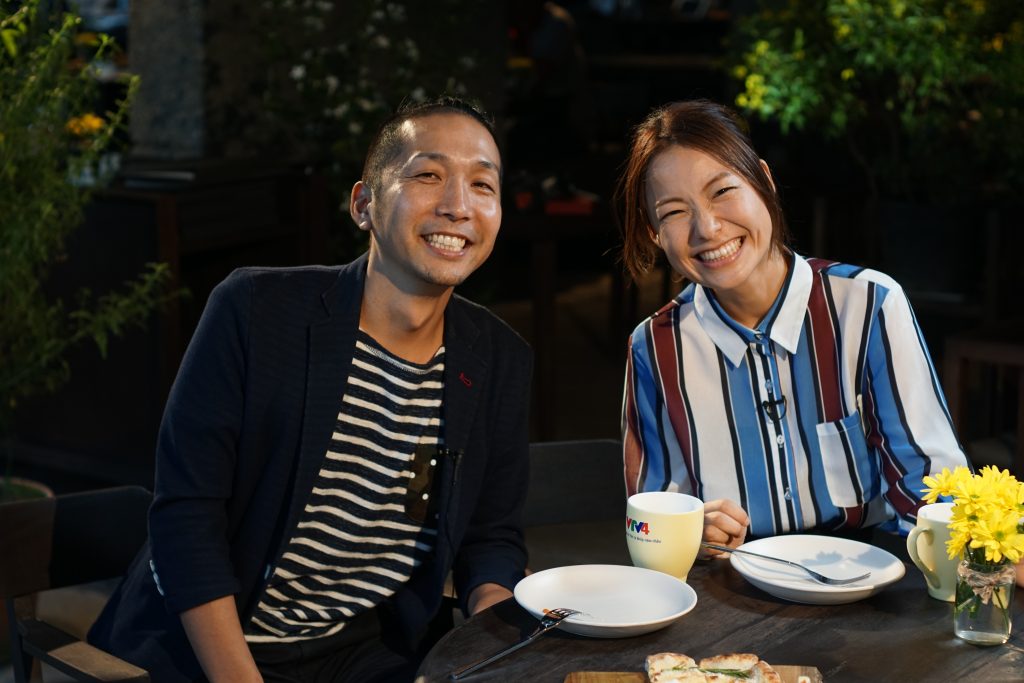
AP: I heard you and your husband are very focused on sustainability and that you sourced local ingredients. Can you explain more on that?
SM: From day one, we had intentions about creating a purposeful company but we were struggling during the startup stage. Because both of us are Japanese, we thought a lot about what we could do to contribute as a Japanese to Vietnam. So once we decided to go into business in Vietnam, we thought we could develop something together that’s established and that Japanese have strengths in to contribute back. Since sustainability was still quite underdeveloped in emerging countries compared to the developed world, we don’t want Vietnam to go through the same mistakes and history of sacrificing nature and the environment for economic development. We thought we could add value to prevent the same mistakes we saw in Japan and other parts of the world. We wanted to do something not just short term but also long term to have a greater impact on society and align with our passion.
In previous years, we were focused on the business side and growing the company. We’ve only recently got the chance to focus on the sustainability issue in our store and to start thinking about the sustainability cycle such as the concept of farm to table, using solar energy for electricity and using food waste as compost. From this year, we could invest in sustainability and contribute back to Vietnamese society.
We have to source ingredients locally and the Vietnamese really appreciated that. They realized the ingredients they have are already inside Vietnam only to be introduced to them by us Japanese. For example, we couldn’t find any amazing fresh cheese so we started doing it by ourselves, this is all based on our needs. At the very beginning, we went looking for a local farmer in Da Lat to get the fresh milk. Then we learned how to make cheese from the milk via YouTube in my kitchen.
So based on the needs, we ended up adopting the farm to table concept, we realized that it makes sense as we’re in Vietnam now and we were able to source more local ingredients. We want things to be in harmony, to flow together, we want to be here with the people, the country, society, and community. Then we started communicating the farm to table concept and the fresh cheese that we do. People realized it’s fresher and started to appreciate that. We didn’t originally intend to communicate that to our customers. The local Vietnamese customers are curious about clean food, by chance, they also become informed about the sustainable economy and the environment.
“We want things to be in harmony, to flow together, we want to be here with the people, the country, society, and community.”
AP: What are you working on now? What are you doing to keep talent and remain competitive in the F&B industry?
SM: We’re just getting started so we need to investigate. What we know is that our employees are looking for growth and they believe in us, that we can train them or give them opportunities to grow so they can reach the highest standard of delivering quality services. We strive for excellence in the things we do. Our staff are very young, and they’re willing to develop themselves. Secondly, they are also very connected and aligned with the Pizza4P’s vision so that’s how we keep them.
We’re focused on developing a strong company culture, based on our core values. This year we’re redefining our core values so we spent a significant amount of time communicating to all our employees from very junior to senior staff. We conduct a lot of core values training sessions and we remind them through our evaluation and appraisal process too.

AP: Who was the person that has a profound impact on your life?
SM: There is a Japanese female entrepreneur. Her name is Eriko Yamaguchi of Motherhouse. I’ve never met her but we went to the same university. I think she is five or six years older than me. Her company is called Motherhouse and they make fashionable bags.
When she was an intern for the Inter-American Development Bank, a global NGO, she visited Bangladesh and enrolled as a foreign student and saw the poverty so she wanted to help by creating a business in a sustainable way. She ended up building a factory in Bangladesh to make very high-quality bags. I’m very impressed by her vision and how she has built a high-quality brand made in a developing company such as Bangladesh and able to sell them in department stores in developed countries. We want to do something similar with food in Vietnam.
“You can always get cherry tomatoes packaged in the supermarket, (people) don’t know how they grow or what the process looks like. That kind of lack of connection is concerning. We have a factory in Da Lat so we try to make a tour to connect people with nature. From the beginning we thought that a business is a kind of tool to achieve our vision.”
AP: What kind of future would you like to see happen? And what are you doing to make it happen?
SM: As I shared from the beginning, our ultimate goal is to make the world smile for peace — the peace is not only the word peace, we also want to commit to inner peace. At this moment, what we are doing daily is helping people to forget their worries by sharing happiness within our restaurants so we can make our customers momentarily happy. But what we really want to commit to is lasting happiness. We keep track of two scores, a “Peace Score” which is customer satisfaction and a “Happy Score” which is our employee engagement and happiness. We also look into how we can help our customers achieve inner peace, and find long term happiness so we are looking for organizations to collaborate with on how we can make our customers happy internally. We collaborate with Dr. Ha Vinh Tho from the Gross National Happiness Centre (GNHC), an organization working with Bhutan, since they specialize in that.
We had a retreat together with our management team and went through some mindfulness activity together. We decided to have a three-year project to help our organization get closer to long term happiness so that everyone comes out with inner peace. We want to align our day-to-day operations, our systems and processes with that so that’s what we’re focusing on this year. Our biggest KPI is the “Happy Score”. Our internal portal now records employee happiness. Up until now, we put the customer first and employee second. The “Peace Score” and the “Happy Score” are both even now, we see some correlation between the internal employee happiness and the customer satisfaction. So we believe they’re equal — our people aren’t momentarily happy but they have a purpose to work at Pizza4Ps, and by connecting their personal purpose with the company vision, they see they have a contribution towards their own purpose too. Though we decided to prioritize the internal happiness score, we don’t define the definition of happiness.
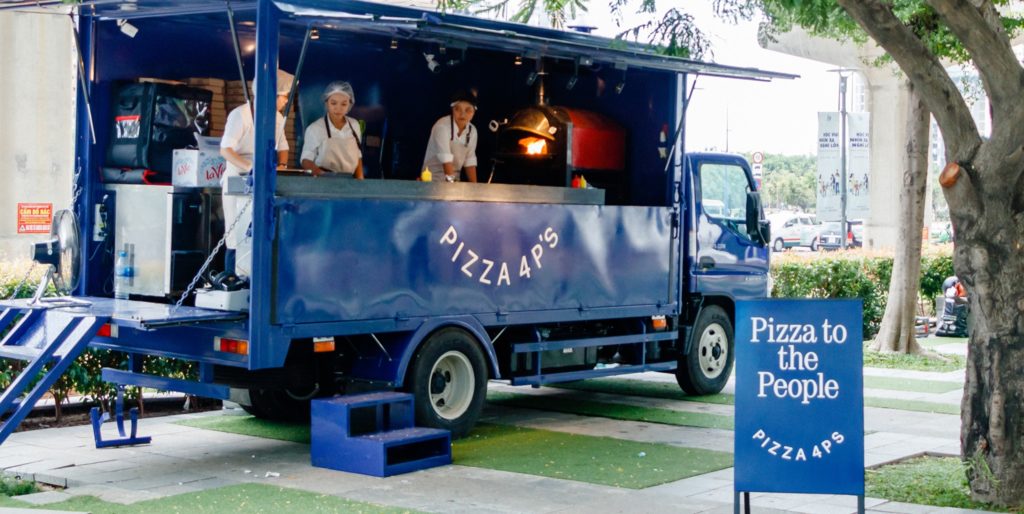
AP: What important global issues do you care about?
SM: There is a lot of environmental pollution in Vietnam and because I’m a mom with two daughters, we’re very conscious about our connection to nature when we first started Pizza4P’s. I worry about the next generation. You can always get cherry tomatoes packaged in the supermarket, people don’t know how they grow them or what the process looks like. That kind of lack of connection is concerning. We have a factory in Da Lat so we set up tours to connect people with nature. From the beginning, we thought that a business is a kind of tool to achieve our vision. We want to look into more possibilities beyond the restaurant, maybe schools or hotels or even media so that we can inspire people to start thinking about nature, inner peace and the connection between people to people. We do not limit our ways to educate.
AP: What advice can you give to young Asian Pioneers?
SM: Don’t limit yourself. If you decide your identity by your current ‘self’, that limits your potential or your possibility in the future as we are always changing. The second is to be authentic or honest. Listen to your authentic passion and find what makes you very excited, not your parents expecting you to do something since they don’t know what you really love. Lastly, enjoy the moment!
AP: Thanks for your time and support Sani-san.


